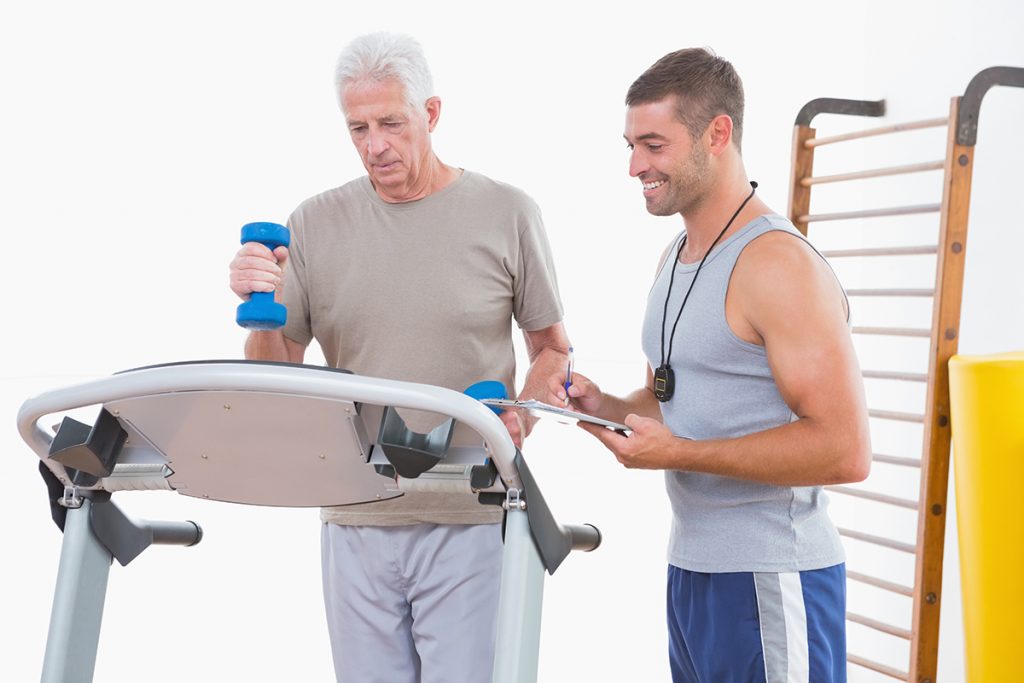Best Exercises to Prevent Osteoporosis
Osteoporosis is a disease that affects our bone system due to a decrease in bone mass, density and an increase in the space between the bones. As a result, one’s bones become brittle and suspect to breaking. There are two types of osteoporosis: type 1 and type 2. Type 1 is generally a result of the aging process and a decrease in hormones such as estrogen and progesterone. These hormones help regulate how fast bone is lost. Type 2 is a result of medications or other health issues that interfere with bone reformation. Thankfully, both types are treatable!
Most Common Areas Affected: Osteoporosis is generally found in the neck of the thigh and lower back. A lot occurs in these areas, so, a decrease in the strength of the bone there is not a good thing.
Nutrition: Since nutrition plays a factor in everything we do, it is important to mention it for those with osteoporosis. The three things to focus on the most are: an increase in calcium, and a stoppage of alcohol intake and smoking.
Exercises: Research shows that it takes about six months of consistent exercise at somewhat high intensities to produce enough bone mass change. With that being said, it is important to use proper exercises in a progressive fashion and make them specific to you. Exercises should focus on the following areas of the body as they stress the overall bone structure: core, hips, thighs, back and arms. Here are my top six exercises to start your 6-month program:
Planks: 1-3 sets of 8-20 reps

Supine Bridges: 1-3 sets of 8-20 reps
Prone Cobras: 1-3 sets of 8-20 reps
Squats: 1-3 sets, 8-20 reps
Standing Tube Row: 1-3 sets, 8-20 reps
Single leg balance: 1-3 sets, 8-20 reps
Conclusion
While osteoporosis can be a life threatening disease, it can be managed through exercise. Most people who include daily exercise are able to ward off further damage to their body and are able to do their normal daily activities of life. Performing the six exercises listed and then progressing to more challenging ones will keep a person with osteoporosis healthy!
Maurice D. Williams is a personal trainer and owner of Move Well Fitness in Bethesda, MD. With almost two deciades in the industry, he’s worked with a wide range of clients, including those with health challenges like diabetes, osteoporosis, multiple sclerosis, hypertension, coronary artery disease, lower back pain, pulmonary issues, and pregnancy. Maurice is also a fitness educator with Move Well Fit Academy and NASM.













